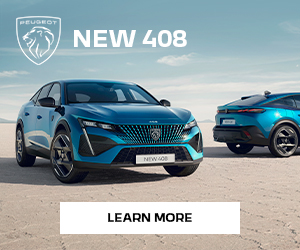Hyundai i20 To Stir Compact Segment
The new Hyundai i20 represents another step in Hyundai’s product development and features a number of changes both inside and out along with the option of a new ultra-efficient and clean 1.1-litre diesel engine.
Its exterior design has received a number of contemporary enhancements to bring it visually more in line with the rest of the i-range. Inside, the New i20 majors on quality with improved plastic materials, a revised and classier centre consol along with updated seat trims.
Among the four powertrain options available to buyers of the new Hyundai i20 will be the new 1.1-litre, three-cylinder ‘U-II’ diesel engine that develops 75ps. When combined with Hyundai’s Blue Drive technologies, this derivative emits just 84g/km of CO2, making it the lowest emitting diesel combustion powertrain on sale today. The engine was developed at Hyundai’s Diesel Centre of Excellence – part of the European R&D set-up in Rüsselsheim, Germany – and showcases Hyundai expertise in clean diesel technology.
This ground-breaking new engine will be offered alongside another sub-100g/km diesel powerplant in the form of the 90ps four-cylinder 1.4-litre ‘U-ll’ engine that emits 96g/km with the aid of Hyundai’s Blue Drive technologies. Completing the line-up are two petrol engines: an 85ps 1.2-litre and a 100ps 1.4-litre.
The Hyundai i20 is available in three main trim levels beginning with Classic, moving up to Active and followed by Style. Starting with Classic, each model comes with a generous list of standard specification including remote central locking, six air bags, air conditioning, ESP and, for the first time on i20, Vehicle Stability Management.
Driver safety is of the utmost importance and the Hyundai i20 features a range of active and passive safety equipment to ensure occupants are protected. The New i20 comes standard with Electronic Stability Programme (ESP) including, for the first time across the range, Vehicle Stability Management (VSM).
Its agility and responsiveness, as well as non-intrusive electronic aids will play a key role in helping to keep occupants safe. However, in the event of a collision, protection is offered by the extensive use of high-tensile steel in the robust bodyshell structure, while front, side and curtain airbags optimise occupant protection. All Hyundai i20 models will have a total of six airbags as standard making it one of the safest cars in its segment.
This safety package is further enhanced by ISOFIX mounting points in the rear and seatbelt reminders for all five occupants. As a result of these measures, the new Hyundai i20 continues to offer excellent levels of active and passive safety and Hyundai fully expects the New i20 to maintain the 5-star Euro NCAP rating achieved by the outgoing model.














